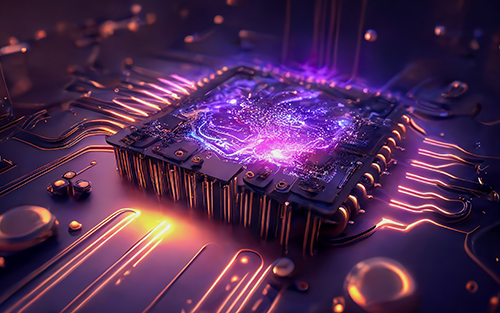
- October 08, 2024
- Rockwell Automation
- Feature
Summary
As industrial automation systems grow increasingly sophisticated, optimizing their performance, reliability and efficiency have become key operational elements.
Unleashing the Power of Generative AI for Optimal Automation Performance
As industrial automation systems grow increasingly sophisticated, optimizing their performance, reliability and efficiency have become key operational elements. Traditional artificial intelligence (AI) approaches to optimizing automation systems relied heavily on predefined rules, algorithms and historical data. While these methods can identify patterns, bottlenecks and areas for improvement based on past experiences, they are inherently limited by the constraints and biases embedded within their training data and rule sets. The emergence and integration of generative AI (GenAI) is driving a new dynamic that harnesses the power of advanced models such as large language models (LLMs) and diffusion models to generate novel content, ideas and solutions based on their extensive training data.
A paradigm shift
Unlike conventional AI systems constrained by fixed parameters, GenAI can create entirely new strategies and approaches that go beyond previously conceived boundaries, offering a fundamentally different and more open-ended approach to optimization. By combining insights from system data with its generative capabilities, AI-powered tools provide a diverse array of creative recommendations to enhance efficiency, throughput and reliability. This paradigm shift empowers organizations to push the boundaries of what is possible, optimize their processes, and unlock new levels of productivity and innovation.
For example, in design software, GenAI can be deployed to generate control code as well as summarize or explain existing controller code using natural language prompts. This application of LLMs allows for context understanding, best practice application, and interaction using domain-specific language. Potential use cases include:
- Code generation
- Product guidance and Q&A
- Documentation generation
- Troubleshooting assistance
- Leveraging design artifacts for innovative solutions
In the context of optimizing automation system performance, reliability and efficiency, GenAI can complement existing methods. By ingesting and analyzing vast amounts of system data, including sensor readings, process logs and historical performance metrics, GenAI models can uncover intricate patterns and relationships that may have been overlooked by traditional optimization methods. By transcending the limitations of rule-based or data-driven approaches, a GenAI system can analyze real-time data from an assembly line and propose a completely novel approach to line balancing, resource allocation or quality control procedures.
GenAI can also play a crucial role in fine-tuning system parameters and adapting to changing conditions or requirements by suggesting new configurations and strategies. This adaptive capability is particularly valuable in dynamic environments where requirements and conditions are subject to frequent changes, enabling automation systems to remain optimized and efficient even as circumstances evolve. However, it’s important to note that while GenAI can generate these suggestions, implementing them in critical systems would require careful validation by domain experts and integration with existing control systems.
Fix not fail
A particularly powerful and valuable application of GenAI in automation is enhancing predictive maintenance and failure prevention strategies. Traditional AI and machine learning techniques excel at leveraging historical data to identify patterns and predict potential failures GenAI can complement these approaches by generating hypothetical scenarios and proposing innovative prevention strategies that might not be immediately apparent from historical data alone. By combining data insights with its generative capabilities, GenAI-enhanced systems can suggest novel maintenance approaches, recommend preemptive interventions, or even suggest redesigns to address underlying vulnerabilities–a proactive approach that can significantly reduce downtime, extend equipment lifespan, and improve overall system reliability.
Developmental considerations
There is a strong and necessary focus on developing GenAI for automation responsibly. This involves enabling customers to incorporate their own standards, best practices, and proprietary information to customize and fine-tune GenAI systems for their specific needs and contexts. Concurrently, there are efforts in the industry to foster thought leadership and establish ethical guidelines for integrating this powerful technology into industrial environments.
The integration of GenAI is viewed not as a replacement for human workers, but as an upskilling and productivity enhancement tool, similar to how past transformative technologies like programmable logic controllers (PLCs) and calculators augmented and amplified human capabilities. Importantly, there will still be a need to have a human-in-the-loop function to vet and validate outputs and recommendations of GenAI systems. Responsible AI practices, such as maintaining transparency, explainability and human oversight, are crucial to ensure the safe and ethical deployment of these powerful technologies.
In terms of end customer benefits, key outcomes include accelerated development timelines through time savings, streamlined workflows making processes more efficient, and the ability for those without deep expertise to still engage with highly complex automation systems through natural language interaction.
#winning
As GenAI continues to advance, its potential impact on automation systems will only grow. By harnessing the power of these models to generate novel solutions, recommendations and strategies, organizations can unlock new levels of performance, efficiency and adaptability in their automation systems, staying ahead of the curve in an increasingly competitive and rapidly changing landscape. However, realizing these benefits will require careful implementation, ongoing human expertise, and a commitment to responsible AI practices.
About The Author
Tony Carrara is business manager, FactoryTalk Design Studio, at Rockwell Automation.
Did you enjoy this great article?
Check out our free e-newsletters to read more great articles..
Subscribe








